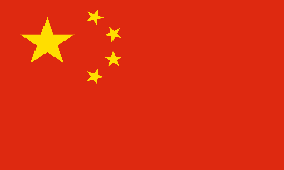
Tangshan applies looser curbs on steel production

The city government in north China's Tangshan has exempted steel mills that have been graded A and B for emissions policy compliance from any steel and sintering output restrictions in December. Mills in grade C will have to conform to output restrictions, equivalent to restrictions enforced when a level 2 pollution alert is sounded, for all of December.
The city government has not specified the extent of output reductions grade C mills will have to make. Tangshan-based mills too are unsure about these restrictions. There is also uncertainty on what kind of restrictions will be imposed in January and February.
"My understanding is C-grade mills will not have cut blast furnace output at all and reduce iron ore fines sintering by 50pc in December," said the manager of a Tangshan-based mill. But the manager of another mill said there could be a 30pc reduction in blast furnace output.
Tangshan last year adopted a four-tier system to control mill emissions during 1 October-31 March. Mills with grade A score got to operate without any cuts, tier B mills were told to cut blast furnace output by 30pc, C-grade mills needed to make a 50pc output cut and D-grade mills had to cut blast furnace output by 70pc and completely suspend sintering.
The latest document also does not list mills in A, B and C grades. But a previous notice on production restrictions in October had put only Shougang Qian'an as grade A. Shougang Jingtang and Sinogiant were marked grade B, while other mills in the city were graded C. The numbers of mills in each grade may have changed since then.
The intensity of production restriction measures will be looser in December, which will boost output since most mills are making profits and have no compelling reason to rein in production, said the China steel logistics professionals committee.
Hebei province, which includes Tangshan city, is aiming for all steel mills to adhere to ultra-low emissions regulations by October next year, which will do away with the need for production restrictions completely from November 2020 onwards.


Trump weighs using $2 billion in CHIPS Act funding for critical minerals

Electra converts debt, launches $30M raise to jumpstart stalled cobalt refinery

Codelco cuts 2025 copper forecast after El Teniente mine collapse

Barrick’s Reko Diq in line for $410M ADB backing

Abcourt readies Sleeping Giant mill to pour first gold since 2014

SQM boosts lithium supply plans as prices flick higher

Nevada army depot to serve as base for first US strategic minerals stockpile

Pan American locks in $2.1B takeover of MAG Silver

Viridis unveils 200Mt initial reserve for Brazil rare earth project

Kyrgyzstan kicks off underground gold mining at Kumtor

Kyrgyzstan kicks off underground gold mining at Kumtor

KoBold Metals granted lithium exploration rights in Congo

Freeport Indonesia to wrap up Gresik plant repairs by early September

Energy Fuels soars on Vulcan Elements partnership

Northern Dynasty sticks to proposal in battle to lift Pebble mine veto

Giustra-backed mining firm teams up with informal miners in Colombia

Critical Metals signs agreement to supply rare earth to US government-funded facility

China extends rare earth controls to imported material

Galan Lithium proceeds with $13M financing for Argentina project

Kyrgyzstan kicks off underground gold mining at Kumtor

Freeport Indonesia to wrap up Gresik plant repairs by early September

Energy Fuels soars on Vulcan Elements partnership

Northern Dynasty sticks to proposal in battle to lift Pebble mine veto

Giustra-backed mining firm teams up with informal miners in Colombia

Critical Metals signs agreement to supply rare earth to US government-funded facility

China extends rare earth controls to imported material

Galan Lithium proceeds with $13M financing for Argentina project

Silver price touches $39 as market weighs rate cut outlook

















